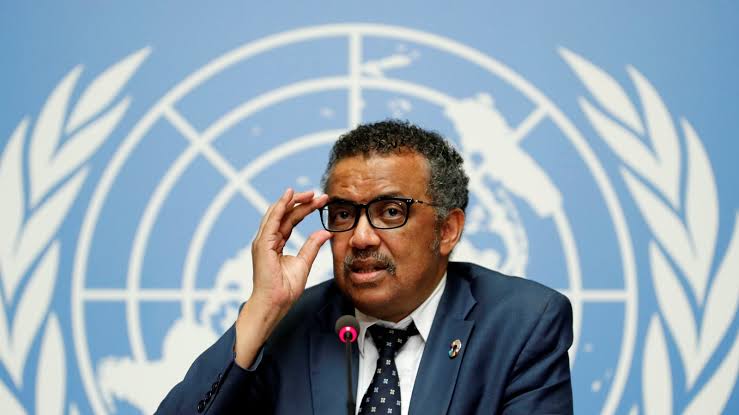The Director-General of the World Health Organisation (WHO), Dr Tedros Ghebreyesus, has called for collaborative efforts between communities and the health system to bring Tuberculosis (TB) under control. Ghebreyesus made this call during a press conference held on Tuesday, where he highlighted the importance of community empowerment in making TB a policy priority.
“Efforts to bring tuberculosis under control have been hampered by the COVID-19 pandemic and conflicts in Europe, Africa and the Middle East. All of this makes working with affected communities and civil society critical to bringing this killer disease under control,” said Dr Ghebreyesus.
According to Dr Ghebreyesus, the 2030 Sustainable Development Goals, universal health coverage, and primary health care agendas have all recognised community empowerment as a vital process in bringing TB under control. To support these efforts, the WHO has launched a new DG Flagship Initiative to End TB.
“As I announced on World TB Day, the Flagship Initiative’s aim for the next four years is to support the fast-tracking of progress towards ending TB, and advancing research and innovation on new vaccines,” said Dr Ghebreyesus.
Dr Ghebreyesus also highlighted the challenges facing the healthcare system in addressing tuberculosis including the significant proportion of TB patients who are not receiving the healthcare services they need.
“Nearly 40% of the 10.6 million people with TB were not receiving the healthcare services they needed,” said Dr Ghebreyesus. “To end TB, we need to find and treat all people with TB, regardless of where they live, and invest in research for new diagnostics, drugs, and vaccines.”
Tuberculosis is an infectious disease caused by the bacterium Mycobacterium tuberculosis. The disease mainly affects the lungs, but it can also affect other parts of the body, such as the brain, kidneys, or spine. TB is spread from person to person through the air when people with TB cough or sneeze. Symptoms of TB include coughing, chest pain, fatigue, and fever, among others.
“To end TB, we must work together. TB anywhere is TB everywhere. It’s time to step up the pace and end TB for good,” said Dr Ghebreyesus.
Dr Ghebreyesus emphasized the importance of collaboration between healthcare providers and communities, stating that community empowerment is critical to curbing the spread of TB.
“The 2030 Sustainable Development Goals, universal health coverage, and primary health care agendas all recognise community empowerment as a vital process in helping to make TB a policy priority,” said Dr Ghebreyesus. “The WHO Civil Society Task Force on TB has been working to bring the voices of TB-affected communities and civil society to the work of WHO.”
To further encourage community engagement, the WHO plans to publish new guidance soon for community engagement to end TB.
“With this in mind, new WHO guidance for community engagement to end TB will be published soon,” said Dr Ghebreyesus. “Empowering communities to become part of the solution is key to ending TB.”
Nigeria is one of the 30 countries with the highest burden of TB in the world, according to the WHO. The call by the WHO Director-General for joint action between communities and the health system to bring TB under control is therefore of great significance to Nigeria. The country has been taking steps to combat the disease, including free increasing funding for TB control which has led to free testing and treatment for the disease, investing in new technologies for both diagnosis and treatment, and improving access to healthcare services.
To successfully put TB under control collaborative efforts between healthcare providers and communities must be strengthened. The WHO’s recent efforts to address TB, including launching a Flagship Initiative to End TB and working with the Civil Society Task Force on TB, demonstrate its commitment to tackling this deadly disease. With new guidance for community engagement on the horizon, the WHO hopes to continue empowering communities and advancing research and innovation to end TB for good.



